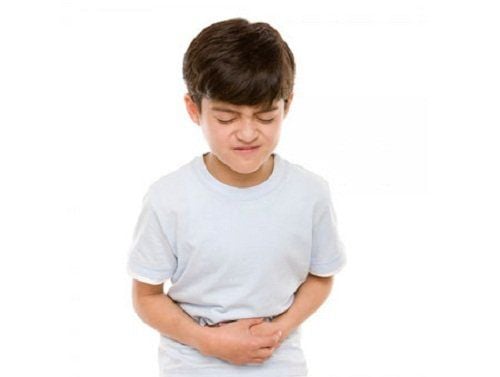This is an automatically translated article.
Carrots have a rich nutritional content and are also used as a medicine used to treat diseases. The most characteristic nutritional composition of carrots vitamin C and carotene. However, children should not eat much because it can cause some adverse effects for children such as: Jaundice, bloating, flatulence...1. Nutritional composition of carrots
Carrots belong to the group of vegetable foods of plant origin. The nutritional composition of carrots is quite rich, especially vitamin C and carotene - provitamins. In addition, in 100 grams of carrots also contain ingredients such as: 1.5 grams of protein, 1.2 grams of cellulose, 43 grams of calcium, 39 mg of phosphorus, 0.8 grams of iron, 0.06 grams of vitamin B1, .. And carrots also contain a lot of sugar. In addition to the rich nutritional value of carrots, it can also be used as a medicine to treat diseases according to the method of Oriental medicine. prevention as well as treatment of anemia caused by iron deficiency while also enhancing the growth ability in children. For cases of digestive disorders or mild diarrhea, carrots can be used, because the ingredients in carrots have the ability to restore bowel movements to normal.2. Is it good for children to eat a lot of carrots?
Carrots are known as nutritious foods. However, that is not the case, but let children eat carrots as much as possible.
Mothers are always concerned about whether or not they should give their children a lot of carrots. And is it good for children to eat a lot of carrots? The answer is that children eating a lot of carrots is not good. Because, it can be seen that carrots are known as a good food for the young body with high vitamin, mineral and fiber content. However, using a lot of carrots can cause diseases and negative changes in the child's body.
2.1. Carrots can change the color of your baby's skin
Carrot ingredients are quite rich in beta carotene, which is capable of converting into vitamins when entering the body. Carotenoid compounds work to give the skin a normal yellow color. However, if children use carrots in large quantities and regularly, the carotene content can make their skin unusually yellow or in more serious cases can turn their skin orange. This phenomenon is caused by increased carotene in the blood or carotene deposits in the skin - can be easily recognized on the hands, palms, soles, palms or even on the face. Therefore, in order to promote the effects of carrots, mothers should supplement their children's carotene levels at2.2. Carrots can cause bloating in children

Trẻ ăn nhiều cà rốt có thể làm tăng nguy cơ bị đầy hơi
This phenomenon can be explained by the high fiber content in carrots. When the body has an excess of fiber, it can cause bloating and gas.
On the contrary, the role of fiber is very important in the diet. Because fiber not only helps digest food faster but also helps regulate weight at an ideal level. However, for children, if they eat too much fiber, they can experience unpleasant phenomena such as gas or stomach cramps.
2.3. Carrots can cause obstruction to the absorption of nutrients into the child's body. The fiber content in carrots, in addition to providing significant benefits to the body, becomes an obstacle to the absorption of some nutrients. nutrients such as iron, zinc, magnesium, and calcium. So consuming too many carrots will make the body easily deficient in important nutrients for the body such as: Protein, fat....
The body needs protein for the process of building muscle as well. such as maintenance of life, regeneration as well as immunity along with the production of hormones and enzymes. Fat is necessary for the growth and protection of the internal organs of the child. In addition, fat is also considered as a reserve energy source and acts as a catalyst for the absorption of some fat-soluble vitamins to maintain cell membranes.
Many mothers feed their children carrots very early when making complementary feedings without knowing that the ingredients of carrots are quite high in nitrates. When eating a lot of carrots with a regular habit, it will cause a reaction to form methemoglobin in young children. This compound has the redox capacity of the reducing enzyme system, increasing the blood metheglobin level, leading to cyanosis of the body, difficulty breathing, even in severe situations can lead to death.
3. The amount of carrots should be used for children
Although carrots contain many beneficial nutrients for children, they should not be given too many of these foods. According to nutritionists, it is recommended that children eat carrots only 2-3 times a week. , each time half a large tuber or a small tuber 50g.
Mẹ chỉ nên cho bé ăn cà rốt 2-3 lần một tuần là tốt nhất
For children to be healthy and develop well, it is necessary to have a nutritious diet in terms of quantity and quality balance. If children are not provided with adequate and balanced nutrients, it will lead to diseases of excess or lack of nutrients, which adversely affect the comprehensive development of children in terms of physical, mental and motor skills.
Children who do not eat properly are at risk of micro-mineral deficiency causing anorexia, growth retardation, malabsorption,... If they notice the above signs, parents should supplement their children with products. The supplement contains lysine, essential micro-minerals and vitamins such as zinc, chromium, selenium, and B vitamins to help fully meet the nutritional needs of children. At the same time, these essential vitamins also support digestion, enhance nutrient absorption, help improve anorexia, and help children eat well.
Parents can learn more:
Signs of zinc deficiency in children
Micronutrient deficiency and failure to gain weight in children
Please regularly visit Vinmec.com website and update useful information to take care of your child. Take care of the baby and the whole family.
Reference source: cih.com.vn













